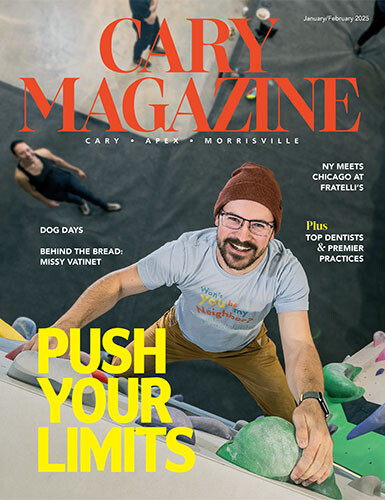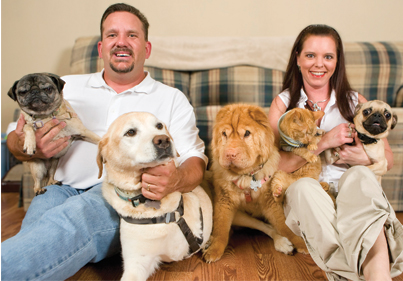All pets deserve special care; however there are some pets that may require just a little bit more than others. Of the millions of pets available for adoption each year, countless thousands are categorized as pets with special needs. Special needs can encompass various disabilities, including congenital or acquired conditions, or a combination of both.
Animals with disabilities tend to be very adapting despite their problems, and most find ways to function to the fullest capacity possible. Caring for pets with special needs does not necessarily have to be a burden to the adoptive family. However, these pets require an environment committed to meeting the individual needs of the pet in order to provide appropriate and beneficial care.
Congenital disorders consist of medical conditions that are present at birth as a result of either hereditary or environmental influences. Willie the cat and Jackson the pug are examples of pets with congenital disorders. Willie was born without both of his upper eyelids and an abnormality to one of his eyes, which eventually had to be surgically removed. Willie also has an abnormal spine, which adversely affects the nerves to his bladder and colon, resulting in elimination problems. Jackson was born without elbow joints and was given to a pug rescue organization. Surgical correction of his problem was not possible. Both Willie and Jackson have adapted well to their disabilities and manage to live fairly normal lives.
Congenital disorders may also be genetic or inherited in nature. Paddie, a shar-pei, has a combination of shar-pei fever syndrome and glaucoma, both diseases common in the breed. As a result, Paddie suffers from sporadic episodes where she acquires a high fever and gets very ill and is treated supportively until the episode passes and she feels better. Her right eye has been surgically removed and replaced with a prosthesis due to her glaucoma, which has caused her left eye to be completely blind.
Acquired medical conditions in pets vary widely in nature. They can be the result of chronic medical conditions and behavioral issues. Klesko, a yellow lab, is a four-time cancer survivor. As a puppy, he had a histiocytoma removed from his eyelid. Later in life, he had his left front leg amputated due to mast cell cancer and completed six months of chemotherapy. Shortly thereafter, he had his tail amputated due to a hemangiosarcoma. Six months later, Klesko underwent a radical surgery to remove a large hemangiopericytoma from his right chest wall. Klesko also suffers from significant dog aggression and takes daily medication to control his temper.
Acquired medical conditions in animals can be acute or chronic in nature, and the result of trauma. For example, Timmie was originally rescued as a 6-week-old kitten that was found with two broken legs, which eventually healed. At a young age, Timmie was diagnosed with melanoma cancer in the iris of his eye and had a surgical laser treatment that cured his disease. Timmie also suffers from chronic skin allergies that require daily medication to keep him comfortable.
Special needs pets often find themselves in situations where their families can no longer care for them. Percie the pug was given to a pug rescue organization as a result of her chronic medical problem. Percie suffered from chronic ulcerative proliferative stomatitis, a rare but severe inflammatory disease that affected her mouth and gums. As a result, Percie was in a significant amount of pain. Percie has since undergone multiple dental procedures that removed all of her teeth and cured her disease.
The term special needs also encompasses those pets that are fortunate enough to reach their senior years. Many pet owners forget that the probability of disease increases with the age of the pet. Bonnie and Clyde, 15-year-old biological cat siblings, have recently been diagnosed with hyperthyroidism, an endocrine disorder that is well regulated with oral medication. Clyde is also a cat who suffers from hypertrophic cardiomyopathy, a congenital heart disease that is also controlled with daily medication. Clyde was also diagnosed and surgically treated for an acquired spinal tumor that resulted in temporary paralysis of his hind legs when he was younger.
The adoption of a pet with special needs is not for every family. Depending on the severity of the disability, there are many things that families should take into consideration before adopting a pet with special needs.
For those who feel adopting a pet with special needs is the appropriate decision for their family, veterinary hospitals, local animal shelters and rescue groups frequently need foster homes for special needs pets. The Cat Clinic of Cary has given ongoing care to a wide range of special needs pets throughout the years.
Amazingly enough, the above special needs pets belong to Dr. Jennifer Hodge, a veterinarian who owns the Cat Clinic of Cary. She has developed an incredible bond and a great sense of achievement in providing a healthy and happy environment for these pets. Dr. Hodge welcomes the opportunity to discuss concerns before making a decision to adopt a special needs pet. For more information, call her at (919) 469-9000.
Contributed By Jennifer Hodges, of Cat Clinic of Cary





